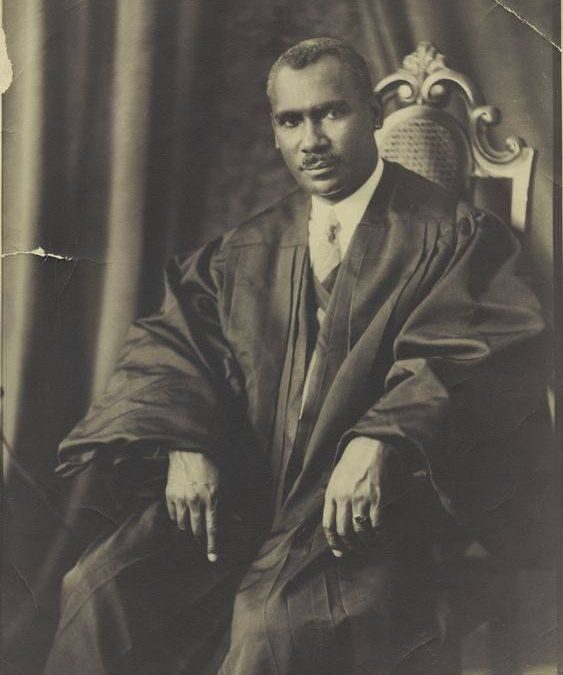HEROIC BEGINNINGS
James S. Watson and Charles E. Toney were the first African American males elected as judges in New York State. The Honorable James Watson (1882 – 1952), illustrated above, was a pioneer. In 1930, he campaigned successfully for municipal court judge and became one of the first two African Americans elected to Judicial office in New York City. Judge Watson was also the first African American jurist to preside over cases involving white litigants. Born on May 29, 1882 in Spanish Town, Jamaica, Judge Watson immigrated to the United States in June 1905. He attended evening high school in New York City. He then took night classes at City College of New York and then New York Law School, from which he received his LL.B. in 1913. After becoming a citizen in 1913 and being admitted to the New York bar in 1914, Watson continued to work for the firm which he clerked for as a college and law student. Watson worked for that firm until 1920, becoming head of their department of corporate and tax law.
In 1920, James Watson and two other African American attorneys, S.T. Christian and J.E. Stevens founded their own law firm where he practiced until 1930. In 1922, James Watson also became Special Assistant Corporation Counsel to New York City in the Special Franchise Tax Division. Additionally, Judge Watson represented Marcus Garvey during the 1920s.
In 1950, Judge Watson resigned from the bench to become the President of the Municipal Civil Service Commission. In 1917, Judge Watson married Violet Lopez Watson, who along with Dr. Mary McCloud Bethune, founded National Council of Negro Women. The Watsons had four successful and accomplished children. When Judge Watson died in 1952, over 3,000 individuals attended his funeral.
Judge Charles E. Toney was elected to the Municipal Court of the Tenth Manhattan District in 1930 and retained that position until 1950. Judge Toney was born in Alabama in 1880 or 1881. He studied at Syracuse University and began practicing law in New York in 1905. From 1931 until his death in 1951, Judge Toney lived with his wife, Lily, in New York City. Although public information regarding the details of his life are scarce, his trail blazing position on the bench certainly had a seminal impact on the entire legal community in the State of New York.

